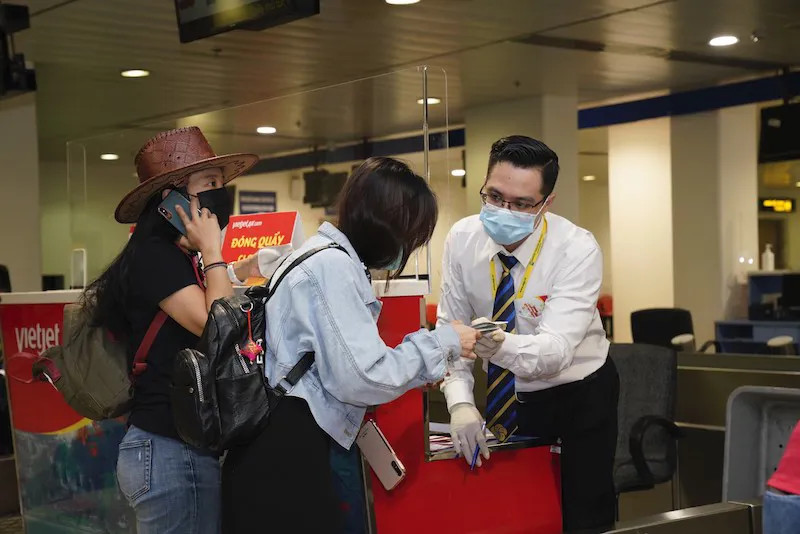Vietnam to resume commercial flights with Japan, South Korea, Taiwan from this July
The reopening of international air routes will be carried out in three phases.
Vietnam will likely resume regular commercial flights with Japan, South Korea and Taiwan (China) from this July, according to the Civil Aviation Administration of Vietnam (CAAV)’s proposal, in an effort to revive the hard-hit tourism industry.
| The reopening of international air routes will be carried out in three phases. Photo: Vietjet Air |
The CAAV’s proposal was put forth after a thorough study of vaccination results as well as the application of “vaccine passport” or called digital green pass and the IATA Travel Pass worldwide.
In the first phase, Vietnam will allow entry of incoming Vietnamese passengers who are required to pay a complete package including airfares, Covid-19 tests, 15-day quarantine and three-day meals at quarantine accommodations and other services.
The frequencies of the flights will depend on the quarantine protocol of the destination.
In the second phase, air carriers will fly to Japan, South Korea and Taiwan (China) with frequency of four flights per week in each direction. They must submit flight plan, which include local quarantine scheme approved by the competent authorities, starting from this July. In this phase, incoming passengers have to pay a complete package similar to the one in the first phase.
The third phase is proposed to take place from September. Based on the immunization assessment of the vaccination campaign worldwide, the Vietnamese air carriers will fly to countries recognizing the effectiveness of the vaccination in Vietnam with frequency of seven flights per week in each direction.
This stage would not require centralized isolation to passengers who had a negative certification for SARS-CoV-2 after undergoing Real-Time PCR testing three-or five days prior to entry to Vietnam, or holders of International Certificate of Vaccination issued by government-approved or WHO-certified health facilities.
Post-entry passengers must declare to local authorities their where abouts and take self-isolation at their accommodations for 7-14 days according to the guidance of the Ministry of Health.
Passengers who don’t have any immunity certification for SARS-CoV-2 must be on quarantine for 14 days with all the expenses covered by themselves (similar to passengers applied in the first phase).
Since last March, Vietnam has banned all international flights to prevent and control the pandemic. From last September, a number of foreign airlines have resumed air travels to Vietnam, but only for taking goods in and passengers out of the country.
Vietnam continues to conduct repatriation flights according to the plan of the Ministry of Foreign Affairs, with priority given to passengers who are in difficult circumstances, experts, high-tech workers. All incoming people must undergo quarantine for 14 days.











